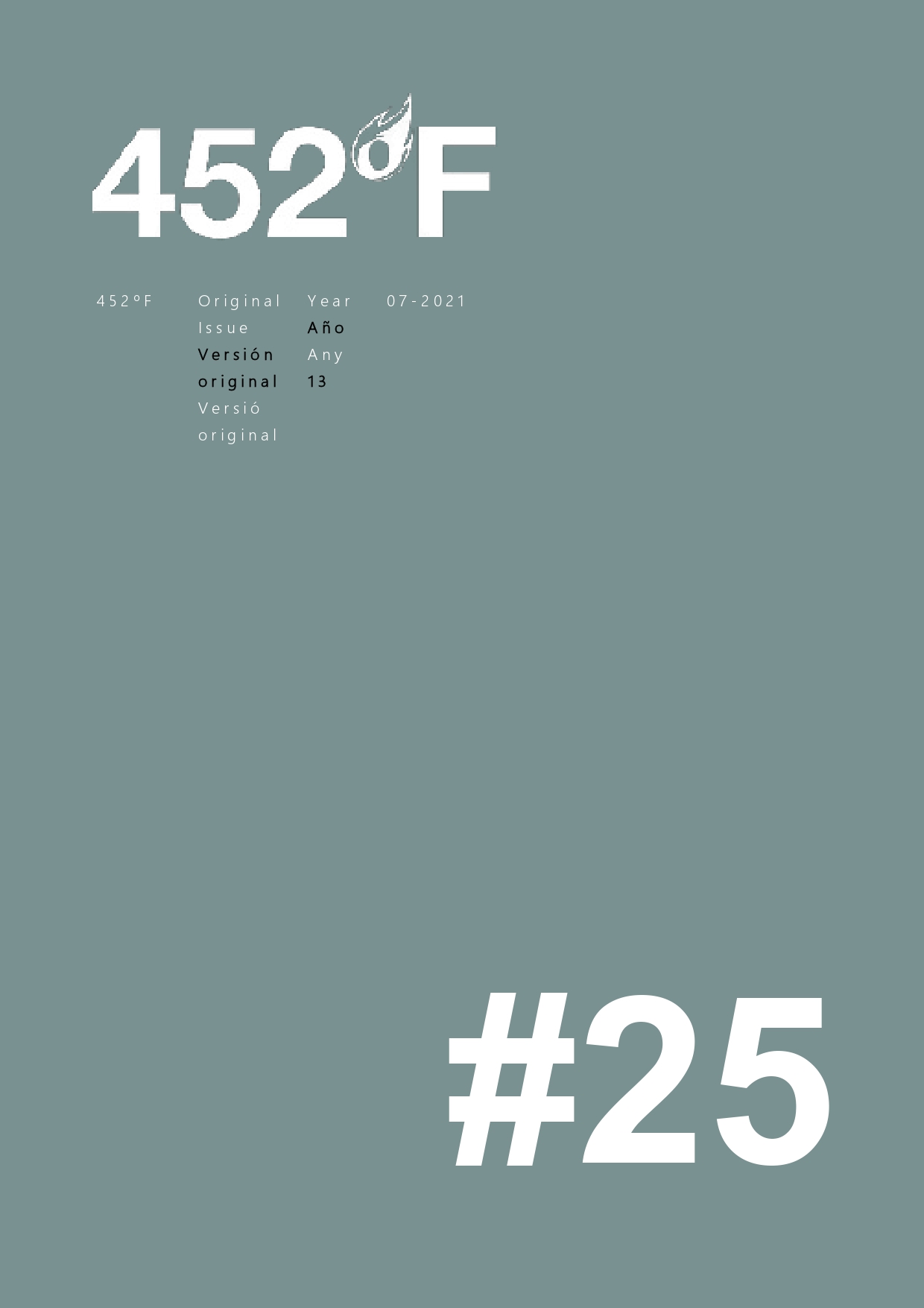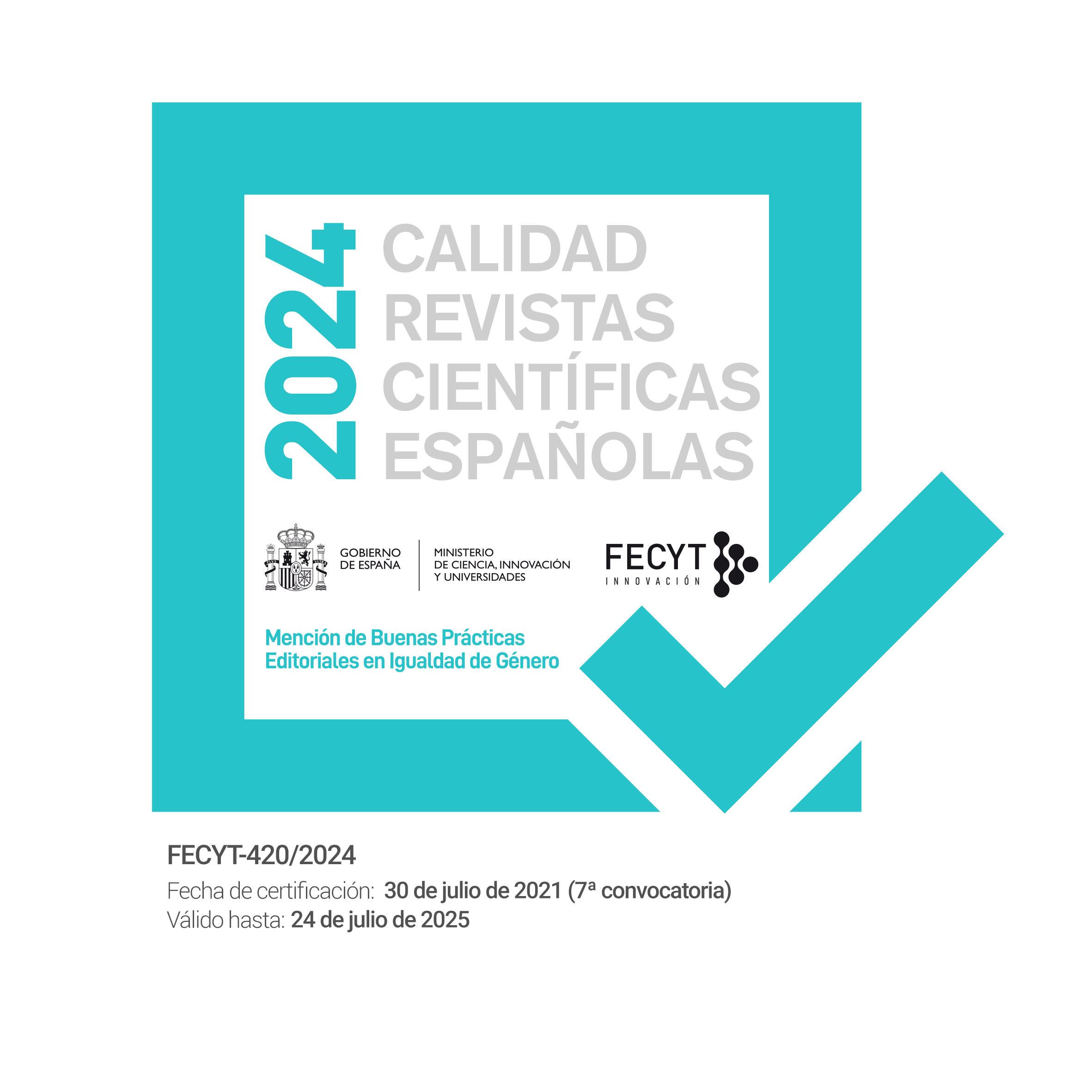Eremitisation through Agamben in Four Pre-Pandemic Novels: Moshfegh, Houellebecq, Vilas, González
DOI:
https://doi.org/10.1344/452f.2021.25.9Keywords:
Eremitisation | Inoperativity | Giorgio Agamben | Comparative literatureAbstract
The aim of this article is to conduct a literary and comparative analysis of four novels published at the same time, just before the emergence of the COVID-19 pandemic, whose protagonists experience a crisis, a sense of temporal completion, and a widely understood exhaustion, which triggers in them the need to retreat from the world and reflect on their modes of life. This act is defined by the term “eremitisation”, as proposed by the Polish sociologist Marek Krajewski. The article examines the literary representations of this phenomenon in the texts in question, analysing its genesis, constituent elements, and the consequences brought about in each of the cases. Then, using mainly the theoretical apparatus elaborated by Giorgio Agamben—concepts such as acedia, bios-zoé relation, katargeo, inoperativity—the article reflects on the subversive potential of eremitisation, paying attention in particular to the tension between the categories of everyday life, inaction, and productivity.
Downloads
Published
How to Cite
Issue
Section
License
All contents published in the journal are protected under a Creative Commons BY-NC-ND license. This corresponds to legislation within Spain, and does not allow commercial use of the texts. It is not possible to modify the contents either.
General information.
Comparative Literature magazine 452ºF [ISSN 2013-3294] is a publishing project coordinated by Asociación Cultural 452ºF, and developed by its Editorial board.
Access to the Contents and Copyright.
All contents published in the journal are protected under a Creative Commons BY-NC-ND license. This corresponds to legislation within Spain, and does not allow commercial use of the texts. It is not possible to modify the contents either.
Every person has free access to the contents of the journal as long as they understand and assume that no profit is to be made on other people’s work.
In all cases, the original source name of the online journal and the article must be mentioned when used for any purposes.
Basic Conditions of all Call for Papers.
- 1. The author accepts that sending the paper:
- a. Does not guarantee the publication of it.
- b. Is done in accordance to the style-sheet of the magazine and the requirements of the specific call for papers.
- c. Implies the non-exclusive transferring of the first publication rights of the paper, as long as it is selected to be published in the journal, to theAsociación Cultural 452ºF, under a Creative Commons BY-NC-ND license.
- 2. The journal 452ºF, in due respect to moral rights of a copyright, guarantees that:
- a. All papers will be evaluated according to the procedure already mentioned.
- b. All authors will receive either a positive or negative answer to their sending a paper for publication.
- c. All papers will be published unabridged. The journal might make changes in the typographical disposition according to the needs.
- d. All papers will be published under a Creative Commons BY-NC-ND license.





